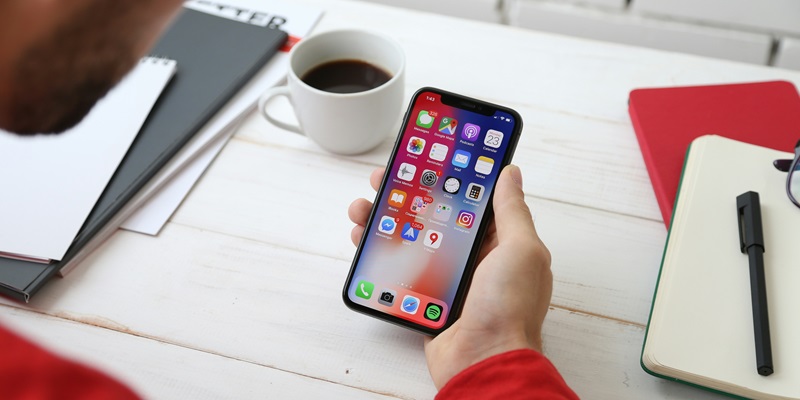In today’s digital age, iPhone apps have become an integral part of our lives, providing convenience and entertainment. However, concerns have been raised regarding some popular apps allegedly bypassing Apple’s privacy rules to gather user data through notifications. This article explores the allegations, the potential violation of Apple’s guidelines, the role of specialized software, and the implications for user privacy.
Allegations Against Popular Apps
Several popular iPhone apps, including Facebook, LinkedIn, TikTok, and X, have been accused of collecting unnecessary data related to analytics, advertising, and user tracking through notifications. Normally, apps gather data only when they are actively being used. Closing an app typically halts data transmission, but a potential loophole arises through notifications, which allows apps to continue data collection even when closed.
This Violates Apple’s Guidelines
The alleged data collection practices when notifications are dismissed may potentially violate Apple’s guidelines. Apple has put stringent privacy measures in place to protect user data, but if apps are actively collecting data through notifications without user consent, this raises concerns about the effectiveness of these measures. The data gathered seems unrelated to notification processing and suggests potential misuse, such as fingerprinting techniques to identify users based on seemingly innocuous device details.
Apple’s Notification Software
To enable apps to function through notifications, Apple provides specialized software that allows apps to play sounds or retrieve information, even when closed. While this provides additional convenience and functionality for users, it also opens up the possibility for apps to collect data beyond what is necessary for notifications.
Unrelated Data Collection for Fingerprinting
The collected data, which appears to be unrelated to the notification process, raises suspicions about its use for fingerprinting purposes. Fingerprinting involves creating unique user profiles based on various device characteristics, enabling targeted advertising or tracking across apps and platforms. If apps are gathering data without user consent through notifications, it raises questions about the transparency and ethical use of this collected information.
Denials from Facebook and LinkedIn
Spokespeople for Meta (owner of Facebook) and LinkedIn have vehemently denied the allegations. They state that the data collected is solely used to ensure proper notification functionality and is in compliance with Apple’s developer guidelines. However, the researchers argue that the widespread nature of this data collection practice across the iPhone ecosystem is surprising, suggesting a need for further investigation.
Researcher Viewpoint
The researchers conducting these tests express concern over the alleged data collection practices. They emphasize the potential misuse of collected data for advertising purposes and question the effectiveness of Apple’s privacy measures. The issue at hand is not limited to specific apps but highlights the broader challenges faced in maintaining user privacy in our increasingly digitally connected world.
Previous Privacy Concerns with Apple
These recent findings are not the first time that researchers have raised privacy concerns with Apple. Mysk’s previous tests have revealed vulnerabilities and potential loopholes within Apple’s privacy measures. These discoveries highlight the need for continuous scrutiny and improvement in safeguarding user data.
Questioning Apple’s Privacy Measures
The revelations surrounding data collection through notifications raise questions about the effectiveness of Apple’s privacy measures. While Apple has taken steps to enhance user privacy, including the introduction of the App Tracking Transparency (ATT) framework, these alleged practices indicate the need for stricter monitoring and enforcement to ensure compliance with privacy guidelines.
Impact and Challenges of User Privacy in the Digital Age
The alleged data collection practices by popular iPhone apps underscore the ongoing challenges of maintaining user privacy in the digital age. As users increasingly rely on technology and apps for various activities, the amount of personal information that can be collected and potentially misused continues to grow. Striking a balance between convenience and privacy protection remains a pressing concern, requiring industry-wide cooperation, transparent data practices, and robust legal frameworks.
The allegations surrounding popular iPhone apps bypassing Apple’s privacy rules through notifications highlight the need for stricter privacy measures, greater transparency in data collection practices, and comprehensive enforcement of guidelines. It is essential to ensure that user privacy is respected and protected in an increasingly interconnected digital world. Apple and app developers must prioritize user trust by strengthening privacy controls and improving communication with users regarding data collection and usage. Through collaborative efforts, we can navigate the complexities of the digital age while safeguarding user privacy rights.

